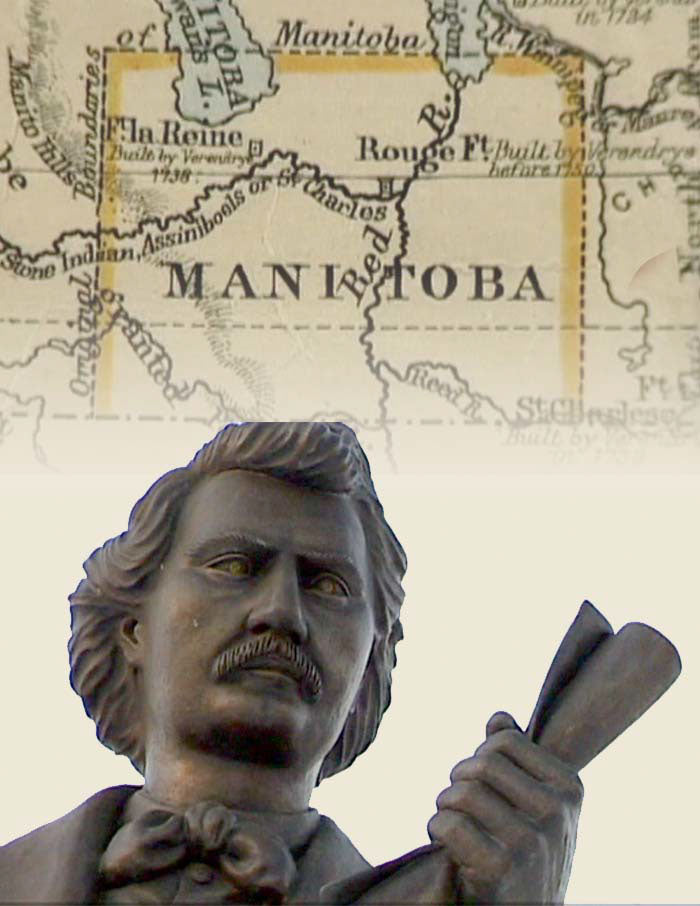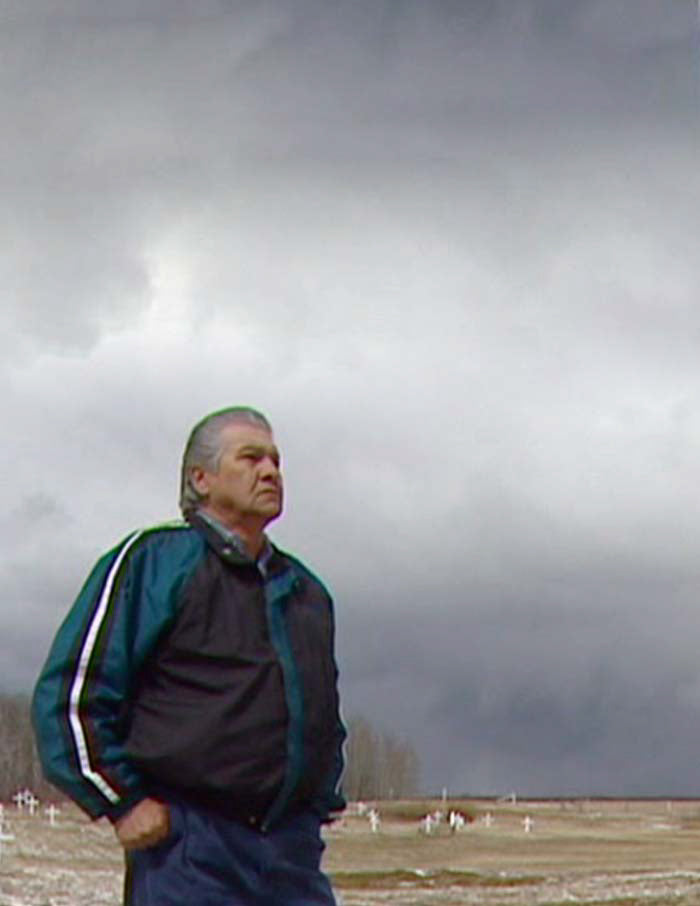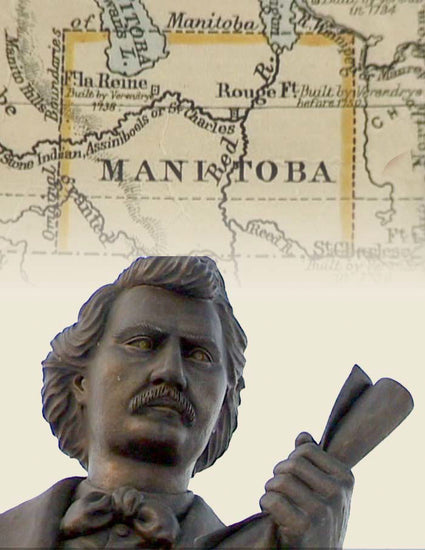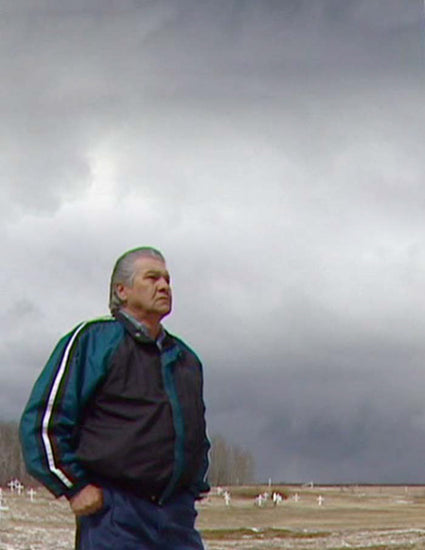La Voix des Mechif (3 parts)
Director
Brian RougeauProducers
Dr. Raoul McKay First Voice Media- Release Date 2002
- Running Time 23 minutes x 3 parts
- Closed Captions No
- Availability Canada, US
- Regular price
- $600.00
- Regular price
-
- Sale price
- $600.00
- Unit price
- per
License Definitions
License Definitions
Institutions: Purchase at this price level if you are from a university, college, school board, school district, government agency, business or association. Note: Price does not include inter-library loan rights.
Community: Purchase at this price level if you are from a single K-12 School, registered not-for-profit, community organization, public library. Note: Price does not include right to circulate DVD/program to other schools within district.
DSL Terms
DSL Terms
DSL stands for Digital Site License and permits the buyer of the license (or Licensee) to host the film on a private, password-protected, closed server for the term of the license for educational use. If your institution does not have a server or a private third party hosting platform or you are looking into a license for curated one-time events or fixed term exhibitions, please contact us.
See below for more information about DSL terms of use. Upon order placement, our staff will contact you within 3 business days to arrange digital file delivery.
Book a Screening
Book a Screening
Couldn't load pickup availability
Share


La Voix des Mechif is a series of three, 23-minute documentaries on the Red River Mechif or Métis people, produced and directed by Mechif historian, educator and storyteller Dr. Raoul McKay. It reveals the origin of a distinct nation with land, laws, its own language and culture.
1. Le drapeau: l'origine de la nation (2002, 23 minutes) The Mechif ruled the plains as successful hunters, voyageurs and traders. As European settlements grew, the settlers sought to control the Mechif and force them to trade pemmican with the Hudson's Bay Company instead of its competitor, the North-West Company or the Americans to the south. This documentary traces the role of early leaders Pierre Falcon and Cuthbert Grant. It reveals the role of the Church as a partner with settlers and European governments in their efforts to assimilate and control the fiercely independent Mechif.
2. La Terre: la base de la nation Mechif (2002, 23 minutes) This second part focuses on the period of 1849 to 1885. The Mechif declared free trade in 1849, despite efforts of the settlers to control their pemmican trade. As settlers from Ontario increased in numbers, the Mechif were determined to protect their land base, essential to their established form of self-government. Negotiations with a recently formed Canadian government created The Manitoba Act of 1870. It set aside 1.4 million acres of land for the Mechif but while appearing to be benevolent, that was far from the case. The land was surveyed in odd ways and a scrip program saw speculators, including business and the Church, rush to purchase scrips from the Mechif at a fraction of their true value. Shunted off their land, this destroyed the Mechif Nation at Red River and many were forced to sleep in road allowances. Gabriel Dumont sought help from Louis Riel to protect their land in Saskatchewan; but with the help of settlers from Ontario and Québec, the Mechif were defeated in the 1885 Battle at Batoche. Riel was captured and Dumont fled to Montana. Even though the Canadian Government didn't have legal jurisdiction over the site of the battle, they acted as if they did. Instead of treating Riel as a prisoner of war, they used an obscure English 14th century statute to execute him for treason to the King. This set the tone for the Canadian Government's future treatment of First Nations with actions that included the banning of traditional languages and cultural practices, Residential Schools, and the Pass System. It also defined the future of the Canadian West, which became a multi-ethnic English speaking society instead of a French-English-Indigenous society as it remains today.
3. Le cercle imparfait: la colonisation (2002, 23 minutes) This part covers the period following the 1885 Battle at Batoche and the role of the scrips program. The Canadian Government's commissioners handing out the scrips were accompanied by speculators who preyed on the Métis people to buy the scrips for a fraction of their worth. The Métis were reduced to squatters on what had been their own land. George Fleury's ancestors had lived in Ste-Madeleine near the Manitoba-Saskatchewan border. He was born there too and recalls how they were forced to move out in 1939 when the PFRA wanted the village to be turned into a community pasture. His family returned from a day's work to find all the houses, the store and their church burned to the ground. They were left with only the clothes on their backs and forced to become transient, living on road allowances. During this period, the Métis were caught in a jurisdictional vacuum with neither federal nor provincial governments taking any responsibility for them. The Alberta Government recognized the severe hardships the Métis were facing. Knowing that the Canadian Government would do nothing to help, Alberta passed the Métis Betterment Act and gave the Métis a land base. This led to the creation of successful communities like St. Paul, where the people have a sense of destiny connected to stewardship of the land.
Directed by: Brian Rougeau
Produced by: Dr. Raoul McKay, First Voice Media
If your institution does not have a server or you are looking into a license for curated one-time events or fixed term exhibitions, please contact us.
Digital Site License (DSL) to Use Copyrighted Material - Terms of Use
The following terms are understood, accepted and effective upon payment of License Fee to Moving Images Distribution, the Licensor, and the buyer, the Licensee, named on the invoice. Copyrighted material, as identified on the invoice, hereinafter referred to as the Program.
- License: The Licensor hereby grants to the Licensee, for the DSL term listed on the invoice, the educational rights for digital streaming of the Program for use within the Licensee’s private, closed system, password-protected platform. Licensee acknowledges it shall not sublicense, sublease, rent, resell, duplicate, digitize or transfer to any other medium or format. Licensee shall not edit, cut or alter the Program nor post it on publicly-accessible websites or networks. This license (i) will not be included in any courses that could be sold to other institutions for future distance-education use; (ii) is non-transferable; and (iii) is not assignable by the Licensee.
- Users: The Licensee agrees that the users for this license shall be restricted to the Licensee’s accredited faculty, staff, students, and walk-in Library patrons.
- Expiration of Term: Upon expiration of the license term, the Licensee shall cease streaming of the Program and the Program must be inaccessible to Users after license term expiry or deleted from the Licensee’s digital servers upon expiry.
Acknowledgement of Limitations: The Licensee acknowledges the Program is copyrighted and the Licensor has a copyright interest in the Program which is legally protected against the Licensee’s use, copying or exhibition except as is set out above.
DVD w/PPR. PPR stands for Public Performance Rights. A DVD with PPR license permits the buyer to use the film in non-theatrical venues for educational purposes, community screenings and other non-commercial purposes. Standard educational DVD w/PPR purchases are in perpetuity for use by the institution, college, school, library, its staff and students.
All DVDs sales are final. We guarantee that all DVDs will be free from defects at the time of delivery. Defective DVDs will be replaced without charge within 30 days of date of shipment.
The creators of all works distributed by Moving Images Distribution hold copyright for their work. Copyrights are a form of intellectual property that gives the owner of the original work exclusive rights to that work, including its publication, distribution, adaptation and use. All purchasers are to specify use required precisely at time of ordering and agree to comply with all copyright, trademark and intellectual property law. No materials purchased may be used outside the rights acquired at time of purchase or may be reproduced in whole or in part by any method now known or hereafter devised. No materials purchased without specific broadcast license and agreement may be broadcast, retransmitted or exhibited in whole or in part without a specific license agreement from Moving Images Distribution for such use.






